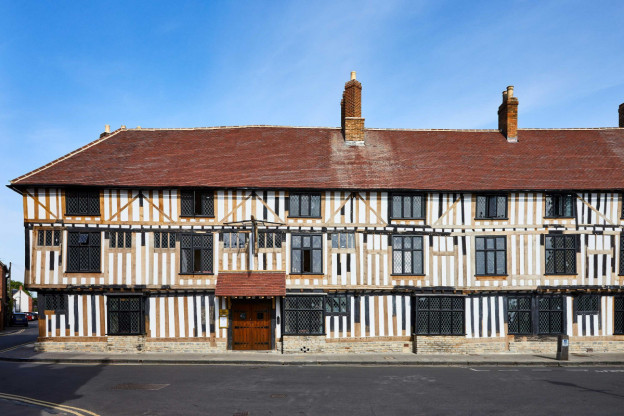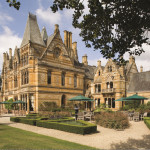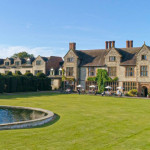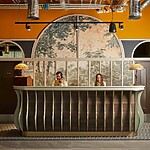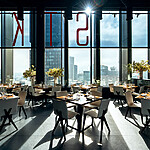Michael Edwards channels his inner Tudor while visiting Hotel Indigo in Stratford upon Avon
Even Stratford-upon-Avon’s Costa coffee-shop has a half-timbered Tudor finish. It is that sort of town. Looking across Chapel Street from the Indigo Hotel, sits a church where parishioners have been singing hymns since the 13th century. Further along the street, a neighbouring pub claims to have been pouring ale since 1594.
With its centuries-weathered black timbers and top storey haphazardly leaning out over Chapel Street, Hotel Indigo initially seems like another slice of Shakespeare’s merrie olde England. Head through a heavy timbered door into the bars that recreate the spirit of The Falcon Inn that once stood on this ale-drenched spot. There is a feeling that you could have stepped back into Tudor and Stuart times.
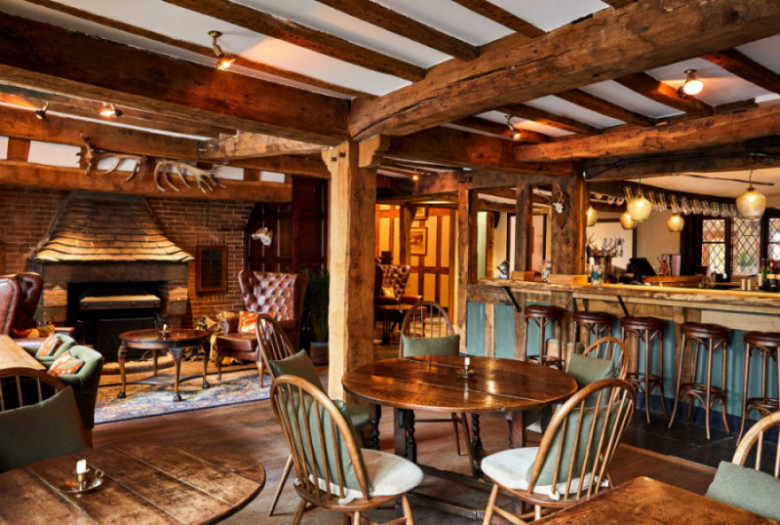
Antlered deer heads adorn the walls. Artwork celebrates hooded kestrels. Sombre portraits stare down at guests enjoying a coffee or any ale by the muntin and mullioned windows. Fireplaces are stacked with timber for those blazing fires of winter.
And yet, after a lengthy and multi-million refurbishment programme, much of Indigo Hotel is surprisingly, refreshingly contemporary. Shakespeare’s times may be historically appealing, but they were never going to win any prizes for interior design nor home comforts. Indigo’s designers have looked to the colours, taste, and comforts of the 2020s.
Essentially, there are three classes of room. In the modern wing there are 76 standard rooms. They are centuries on from the Elizabethan and Jacobean era with wide Hypnos beds and Egyptian cotton bed linen.
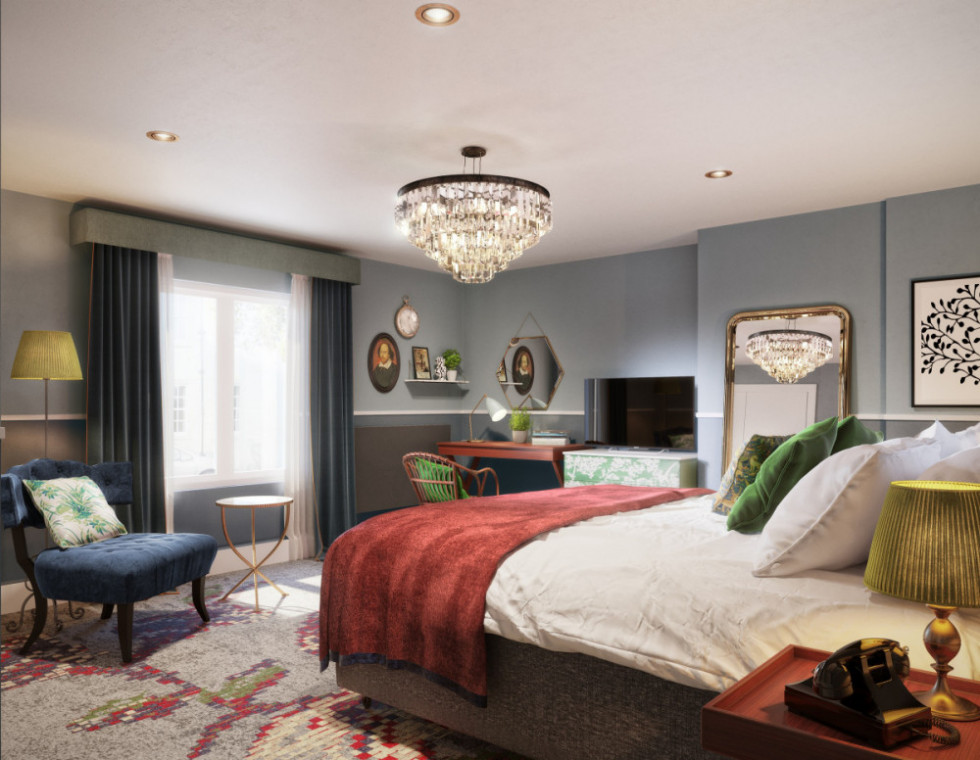
Would Hamlet have been so troubled, would Othello have been so wracked by jealousy, if they had been given access to Nespresso coffeemakers and a 40-inch wall-mounted televisions? Surely, even Lady Macbeth would not have wasted so much time, frantically washing her hands, if she had the benefits of a rainfall shower and ample supplies of Bramley toiletries?
A short walk from reception takes guests through a sheltered courtyard of gardens to the Georgian Townhouses. Think of a Renaissance Gardeners’ World, flourishing with roses dropping their cream and pink petals onto fragrant lavender and rosemary. Room 701, the first of a row of red brick townhouses with white timber doors, even has its own miniature garden hosting table and chairs.
Finally, in the old house, overlooking both Shakespeare’s New Place home and the Edward Vl school where he studied, there are the luxurious Tudor Rooms, making the most of the traditional architectural features.
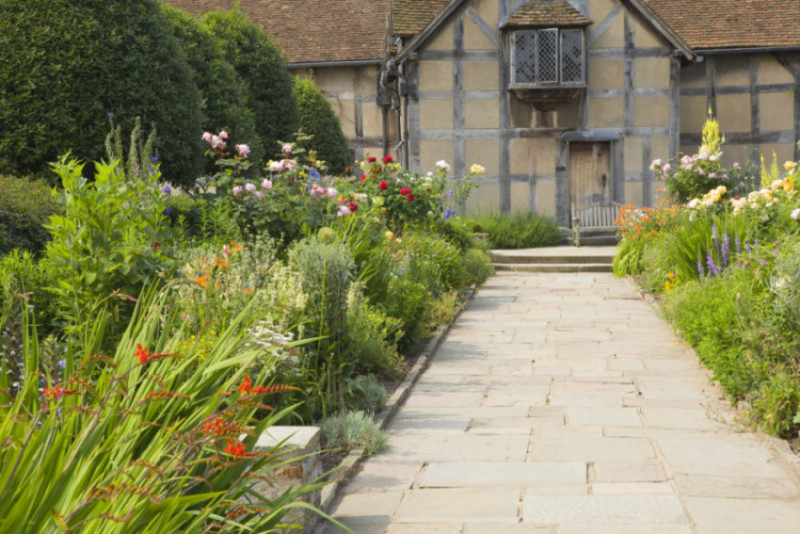
Yet, it is the Woodsman Restaurant, its tall glass doors looking out on tables spilling out into the central courtyard, which is the shining star at Indigo Hotel. When the restaurant, with its open kitchen and brick bread oven, opened it immediately picked-up the Good Food Guide’s Award for Best New Restaurant. Diners will tell you that standards have certainly not slipped since.
The menu is traditionally English but lightly updated with imaginative flair. Take the starter of pigeon pastrami. Slithers of wild wood pigeon are served with the bite of pickled mini mushrooms, the crunch of sunflower seeds and smoothly creamed pecorino cheese.
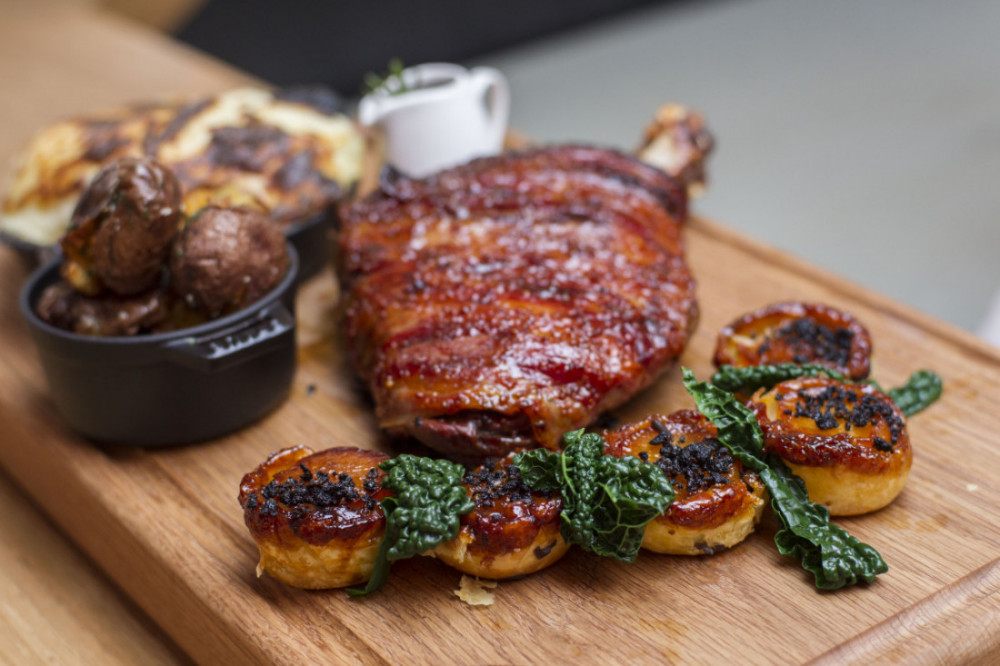
Tudor nobility would recognise the locally sourced Cotswolds venison, Lavington lamb and pork saddleback on the menu. Though the vegan roast oyster mushroom would have been an unfamiliar concept to them. And back then, there were no transport systems to speed Cornish day-boat halibut and pollack to the Midlands.
But this is Stratford-upon-Avon, home of the Bars, there are plays to watch, historic sites to visit. Logically and sequentially, Shakespeare’s birthplace is the first place to begin. Though this attraction is much more than a timber and thatch tour of Shakespeare’s family home. A prologue of a museum sets the scene, explaining that as you walk through the exhibits, somewhere in the world, Hamlet will be on stage. In the gardens of the house, a wall concisely records Shakespeare’s 37 plays. Using cartoons, quotations, and narrative it succinctly summarises the plots of Shakespeare’s opus.
Walking past the riverside Royal Shakespeare Company theatre, a bridge crosses the river Avon to a remarkable Stratford attraction. The hot, humid Butterfly Farm brings the tropics to Warwickshire. Although it is hard to keep track of them, there are usually around 2,000 to 4,000 butterflies in the flight path, providing examples of around 60 to 70 different species fluttering around the exotic foliage.
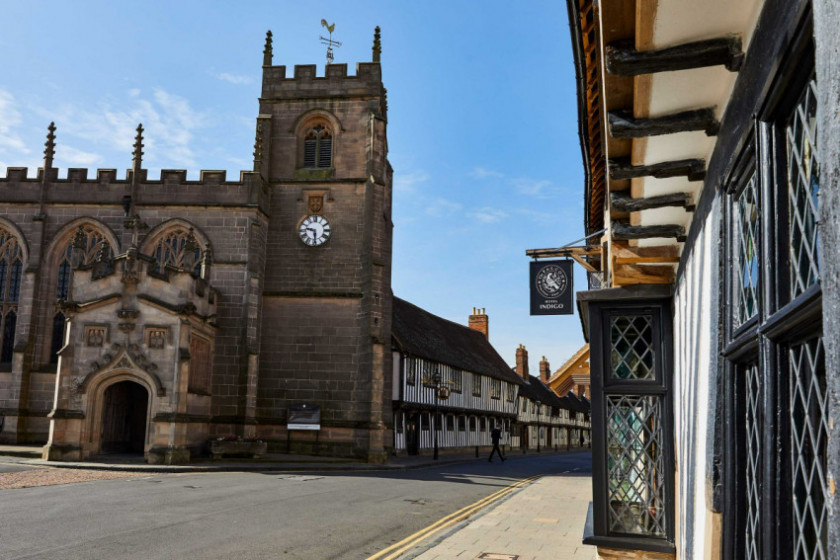
If you need a drink after that that hot, thirsty experience, there is the Shakespeare Distillery offering tours with tastings or the Gin School where you can use the botanicals on hand to design your own gin. Alternatively, bring your own botanicals.
Appropriately, in Shakespeare country the two gin stills are called Portia and Ophelia, whilst the larger still, used for the Jester Rum, is named Auntie Titania. Such is Shakespeare’s legacy that his presence permeates deep into Stratford-upon-Avon, even more than five centuries on from his depth.
Tell Me More About Hotel Indigo, Stratford-Upon-Avon
Hotel Indigo, 4, Chapel Street Stratford-upon-Avon CV37 6HA
T: 01789 279953 E; enquiries@stratford.hotelindigo.com
Rooms at Hotel Indigo from £129 including breakfast
Book for the distillery here
Research Shakespeare’s Stratford heritage here
Check out the butterflies

